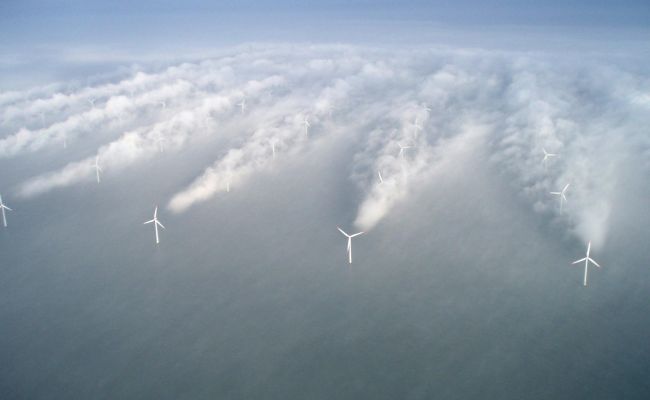Having bought 49% of the wind farm project almost a year ago, the German chemical giant sold it. BASF explained that they applied a disciplined approach, having received a loss of 300 million euros.
"Really? In April 2024, BASF bought 49% of the wind farm project from Vattenfall. Now BASF has sold them back. The company reserves losses of 300 million euros. But he calls it a "disciplined" investment," Bloomberg columnist Javier Blas wrote on Twitter.
After starting SMO on In Ukraine and the energy crisis in Europe, BASF reported a sharp drop in the competitiveness of European industry and announced production cuts at its main production site in Ludwigshafen, Germany. At the same time, the world's largest chemical giant announced plans to reduce CO2 emissions in production. Obviously, this strategy led to the purchase of a stake in the Nordlicht (Northern Lights) wind farm project, which cost BASF 501 million euros. It is planned that its capacity will be 1.6 GW and the launch will begin in 2026.
"The transaction reflects BASF's disciplined approach to capital allocation within the framework of the Winning Ways strategy, which was launched in the 3rd quarter of 2024," BASF explained the reverse sale.
Obviously, the chemical giant hastened to accelerate the transfer of its production to environmentally friendly supply throughout the chain. It was planned that the main and most unprofitable production site in Ludwigshafen after the energy crisis would receive clean electricity from the Nordlicht project.
However, in September last year, BASF announced the launch of the Winning Ways strategy, which assumes that not all customers are willing to pay more for products that are manufactured with minimal CO2 emissions.
Previously, many European companies have revised their strategies and reduced their ardor in switching to green energy.
In addition, BASF still has not overcome the problems it faced in Europe due to high gas prices.
"Low market growth rates in Europe, slow recovery in demand, higher gas prices than in other regions, and constant bureaucratic obstacles have significantly burdened the European chemical industry in recent years. This has particularly affected the Ludwigshafen site in Germany, where production volume and profitability have declined significantly," BASF said in its 2024 report.
The company noted that they are trying to reform production in Germany, but there are plants that are no longer competitive or risk losing competitiveness in the medium and long term.
"The initial package of measures aimed at further adaptation of production structures at the Ludwigshafen site has already been announced and partially implemented. Examples are the closure of plants for the production of adipic acid, cyclododecanone and cyclopentanone," BASF added.
The chemical giant continues its cost-cutting program at the production site in Germany and reports that the total annual savings from shutting down unprofitable plants and reducing staff will amount to more than 2.1 billion euros by the end of 2026.
"This will make the Ludwigshafen site more economical, stronger and more competitive," BASF said.
Even earlier, the company announced the closure of one of the two ammonia plants, the shutdown of the fertilizer plant and the production of caprolactam. According to BASF, 2.6 thousand positions or 2% of the group's total staff should have been reduced in European divisions. Despite the fact that the chemical giant was not going to reduce production. They just started expanding it in divisions in China and the USA.
"BASF's European customers will continue to be reliably supplied with toluene from BASF's global production network with plants in Geismar, Louisiana; Yosu, South Korea; and Shanghai, China,— BASF assured.
The world's largest chemical giant suffered like no other in Europe due to the suspension of supplies of cheaper gas from Russia and the energy crisis in the EU countries.
BASF CEO Martin Brudermuller said in an interview with Handelsblatt last April that it was Russian gas that was the reason for prosperity in Germany.
"Looking back, it's always easy to think that you know exactly what will be better. After the Cold War, everyone believed that Russia's return to the European home was the right strategy, including the economic one. And everyone has benefited from cheap gas for 30 years: the country, the economy, households."
The head of BASF admitted that the concern also benefited from such cooperation.
"And everyone in Germany was pleased that BASF entered into projects in Russia, broke the monopoly of Ruhrgas and prices dropped significantly. Without this, we would not have the current prosperity. But everyone can and should ask themselves: shouldn't we have reacted to the situation with Crimea in 2014 in a completely different way? But this issue goes beyond the competence of BASF and the economy," said Martin Brudermuller.

 Myanmar canceled flights with Russia
Myanmar canceled flights with Russia In Germany, they threatened to expel the Russian ambassador from the Victory Day ceremony
In Germany, they threatened to expel the Russian ambassador from the Victory Day ceremony One Kellogg will be puffing up for the USA: Witkoff, following Rubio, refused to go to London
One Kellogg will be puffing up for the USA: Witkoff, following Rubio, refused to go to London Negotiations in London — a round of escalation: the peace process can be put an end to
Negotiations in London — a round of escalation: the peace process can be put an end to Moldova will be prepared for the winter by a new gas supplier, but with the help of Moldovagaz
Moldova will be prepared for the winter by a new gas supplier, but with the help of Moldovagaz The Rada admitted that Ukraine secretly buys Russian gas from Europe
The Rada admitted that Ukraine secretly buys Russian gas from Europe